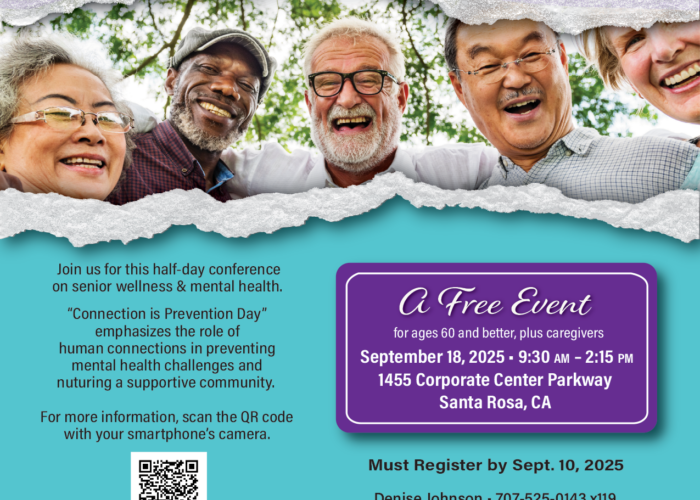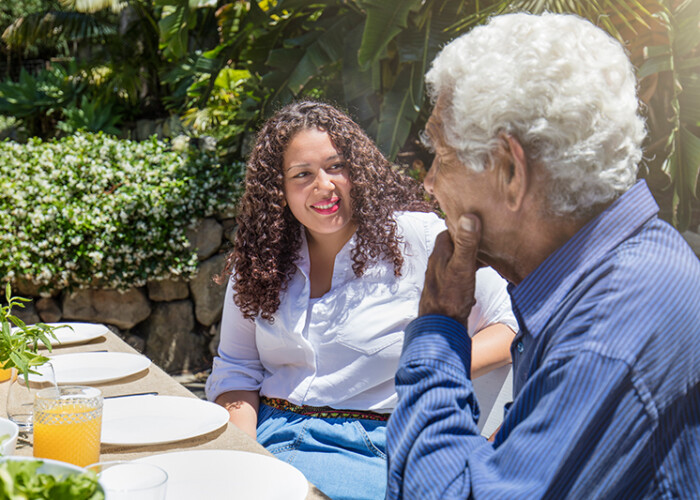Sandwich Generation
Are Your Parents Refusing Help? Try These Tips.
If you’re struggling with parents refusing help when you know it’s needed, try these tips.
It’s a challenging scenario many family caregivers face: your aging parents, who once cared for you, now resist the help they so desperately need. It’s a delicate balance between respecting their freedom and ensuring their safety and well-being. If you find yourself with parents refusing help at home, you’re not alone! We understand the range of emotions that go along with accepting the need for care, and have some tips to help you and your parents get on the same page.
We Hear You! Here’s the Family Caregiver Support You’re Telling Us You Need.
When caregivers were asked what they really needed, here’s what they had to say about family caregiver support.
It might be hard to imagine feeling invisible when you spend so much time with someone you love, but for many family caregivers, it’s a common theme. They describe their daily role as both rewarding and exhausting—a balancing act where their loved one’s needs come first and their own often fall last. Over time, that imbalance can take a toll.
Connection is Prevention!
Connection is Prevention!
Join us on Sept. 18th for a super and FREE event! The Sonoma Co. Behavioral Health department presents a half-day conference focused on senior wellness and mental health. Join a wealth of community partners for FREE Continental Breakfast & Lunch, with several speakers, sessions, vendors, prizes & more!
September 18, 2025, 9:30am – 2:15 pm
1455 Corporate Center Parkway
Santa Rosa, CA
Registration required by Sept. 10.
Contact Denise Johnson: 707-525-0143×119
or DJohnson@CouncilonAging.com
See you there!
Time Management Tips for Caregivers Who Feel Stretched Too Thin
Time management for caregivers is possible with the right support, structure, and a little help from Hired Hands Homecare.
How much extra time do you have on your hands? If you’re like most family caregivers, the answer is probably… not much. Between appointments, meal prep, medication reminders, housework, and all the unexpected challenges that pop up in a day, carving out time just for yourself can feel impossible.
Create Connection Through Cooking With Someone Who Has Dementia
The kitchen is a place where stories are told, hands are busy, and memories simmer right alongside the soup. That’s what makes cooking with someone who has dementia such a powerful tool; it connects the past to the present in ways words sometimes can’t.
How to Handle Repetitive Questions in Dementia Without Losing Your Cool
Repetitive questions in dementia aren’t always easy to manage, but these tips will help.
If you’ve ever heard the same question five times in five minutes from someone you love, you know just how draining it can be. Repetitive questions in dementia are one of the most common and challenging behaviors families encounter. But these loops aren’t something the person can control. They’re a window into how dementia changes the brain.
How Dementia Affects the Senses and What You Can Do About It
Find out how dementia affects the senses, how it impacts quality of life, and how you can help someone you love.
When dementia is part of your family’s life, there’s a good chance that memory loss is top of mind. But there’s another reality that often goes unrecognized: how dementia affects the senses. These unexpected changes can have a huge impact on daily safety, independence, and comfort. If you’re helping care for someone with dementia, understanding how sensory changes show up, and how to respond, is vitally important.
Healthy Conversations With Your Parent Start Here
Learn how to have healthy conversations with your parent to restore peace to your relationship.
When you dedicate so much time and energy to caring for a senior parent, it’s natural for other relationships to take a back seat. After all, there are only 24 hours in a day, and you can only spread yourself so thin. This can lead to additional stress, hurt feelings, and misunderstandings.
The key to overcoming this hurdle is communication. It means having healthy conversations with your parent that may be uncomfortable but allow the opportunity to air grievances, share feelings, and ultimately reinforce the love you have for each other.
Kicking Off a Courageous Conversation
First, know that a planned, formal meeting isn’t necessary for a conversation to be effective. It can be a quick chat while waiting for the coffee to … Read More »
How to Handle a Dementia Outburst in Public
If you’re unsure how to effectively defuse a dementia outburst in public, these strategies are for you!
Dementia is anything but predictable. A loved one’s mood, personality, and behaviors can shift without warning, making daily life feel like a constant balancing act. Managing these changes at home is one thing—but what about when you’re in a restaurant, grocery store, or waiting in line at the pharmacy; how should you handle a dementia outburst in public?
Could You Be Experiencing Caregiver PTSD?
Caregiver PTSD is, surprisingly, the most common form of post-traumatic stress disorder.
When you think of PTSD (post-traumatic stress disorder), your mind might conjure images of soldiers returning from battle or individuals who’ve faced extreme life-threatening events. While PTSD is certainly linked to those experiences, it isn’t confined to them. In fact, PTSD can develop after any deeply distressing event—including providing care for a family member. Surprising, isn’t it? Caregiver PTSD is a significant yet often overlooked issue, as the focus is typically placed on the person receiving care rather than the caregiver’s emotional and mental health.

















